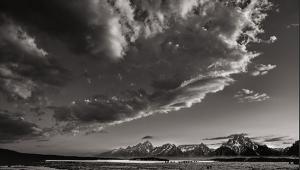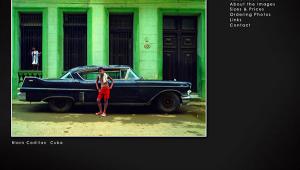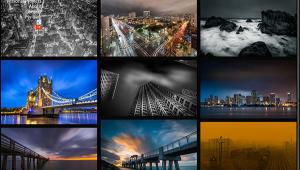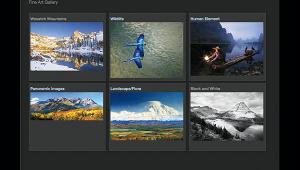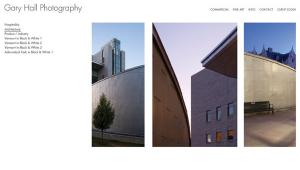Your Rights As A Photographer; Print And Keep Them In Your Camera Bag
"Get up, stand up Stand up for your rights. Get up, stand up Never give up the fight."--Bob Marley
Recently Mary and I were strolling around a local outdoor mall and I was making
some pictures of the landscaping with my recently infrared-converted Canon EOS
20D (www.irdigital.net).
Within moments of raising the camera to my eye, a young and polite security
guard asked if I knew the mall's camera policy. My answer, "What
camera policy?"
Since September 11th, anecdotal reports have spread far and wide over the Internet
about photographers being confronted by authorities and how their rights to
make photographs have been rightly or wrongly challenged. So what are your rights
anyway? Bert P. Krages II Attorney At Law has developed a one-page flyer (www.krages.com/phoright.htm)
containing information on what your rights are when stopped and confronted by
authorities. As the author of Legal Handbook for Photographers (www.allworth.com),
Krages is knowledgeable about photographers' rights. I would like to thank
him for producing a document that explains what your rights are, legal remedies
if harassed, but most importantly how to handle these kinds of confrontations.
Print this PDF file, get it laminated, and put a copy in each of your camera
bags. Be sure to read it several times so you're ready the next time somebody
says, "No Photos!"
 |
|
|
Stand Pat
Stan Patz is a talented New York photographer whose website (www.patzimaging.com)
was designed by his son Ari. Wrapped up inside this classy design are a series
of galleries showcasing Patz's work, but before going there, take a look
at his camera creation. The Patz 616 features interchangeable lenses, produces
four 55x162mm pictures on a roll of 120 film, and was, he told me, "semi-inspired"
by an old Shutterbug article. Patz's imagery cannot be summed up in any
single word. The Studio section contains old-school style mixed with contemporary
high-tech photographs, but to me his most successful images are the simple,
elegant ones, such as a chair with a dress and shoes or a vase of flowers.
His infrared photographs are dramatically evocative, especially the panoramic
photograph of a swing on a tree. Similarly, a Central Park bridge image found
in the Architecture section is pure urban Ansel Adams. From uncomplicated subject
matter, such as the untitled photograph of a shaving brush in the Features (it
should be called "Still Life") gallery, Patz works quiet magic.
His images in monochrome or using little color are more successful than his
color photographs, which are much, much more literal than the dreamlike explorations
found elsewhere on the site. Before leaving, click on Patz's WTC Memorial
to see an image expressing in visual poetry the poignancy of what September
11th means to all of us, not just as photographers
but citizens.
 |
|
|
- Log in or register to post comments
